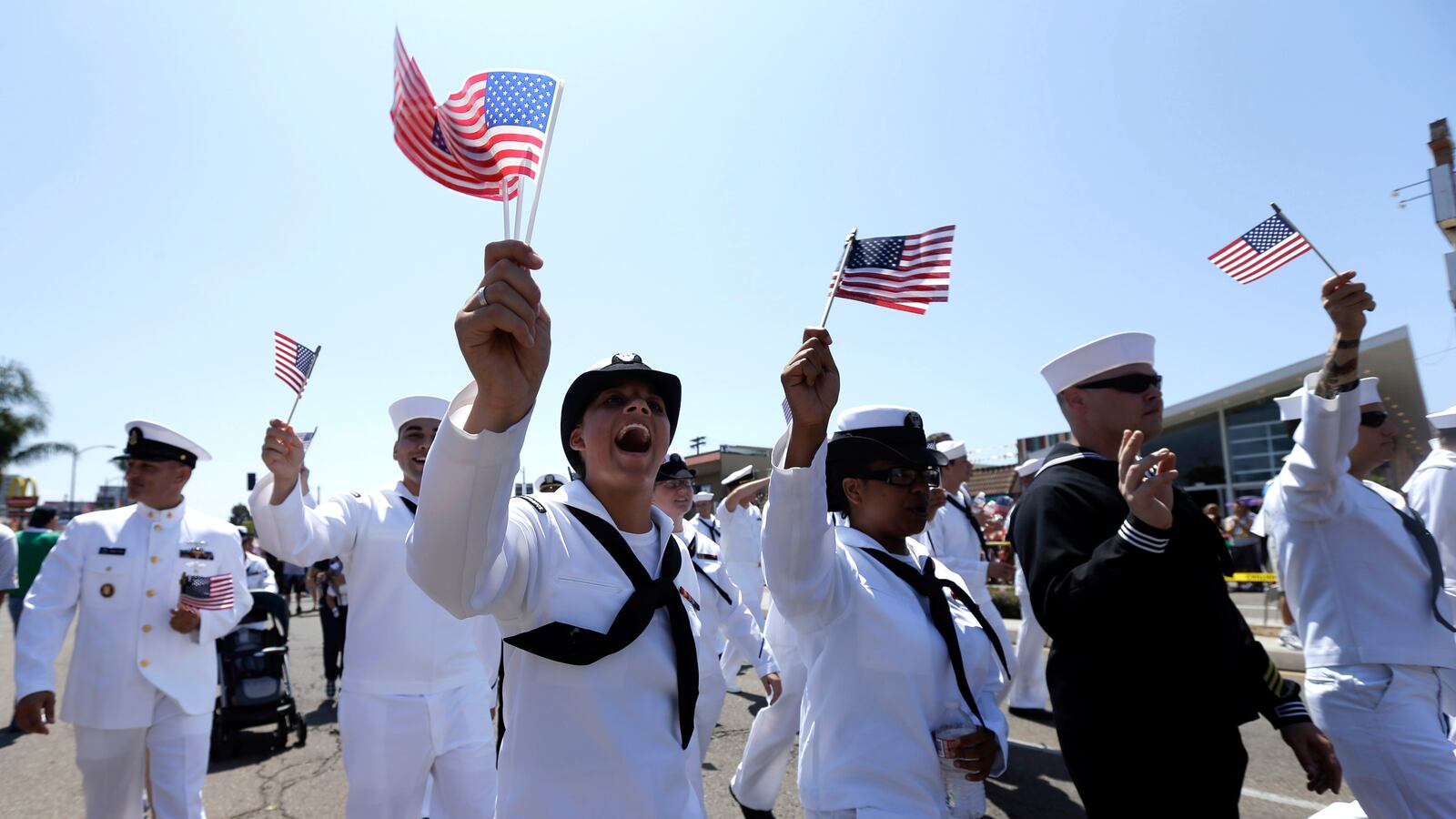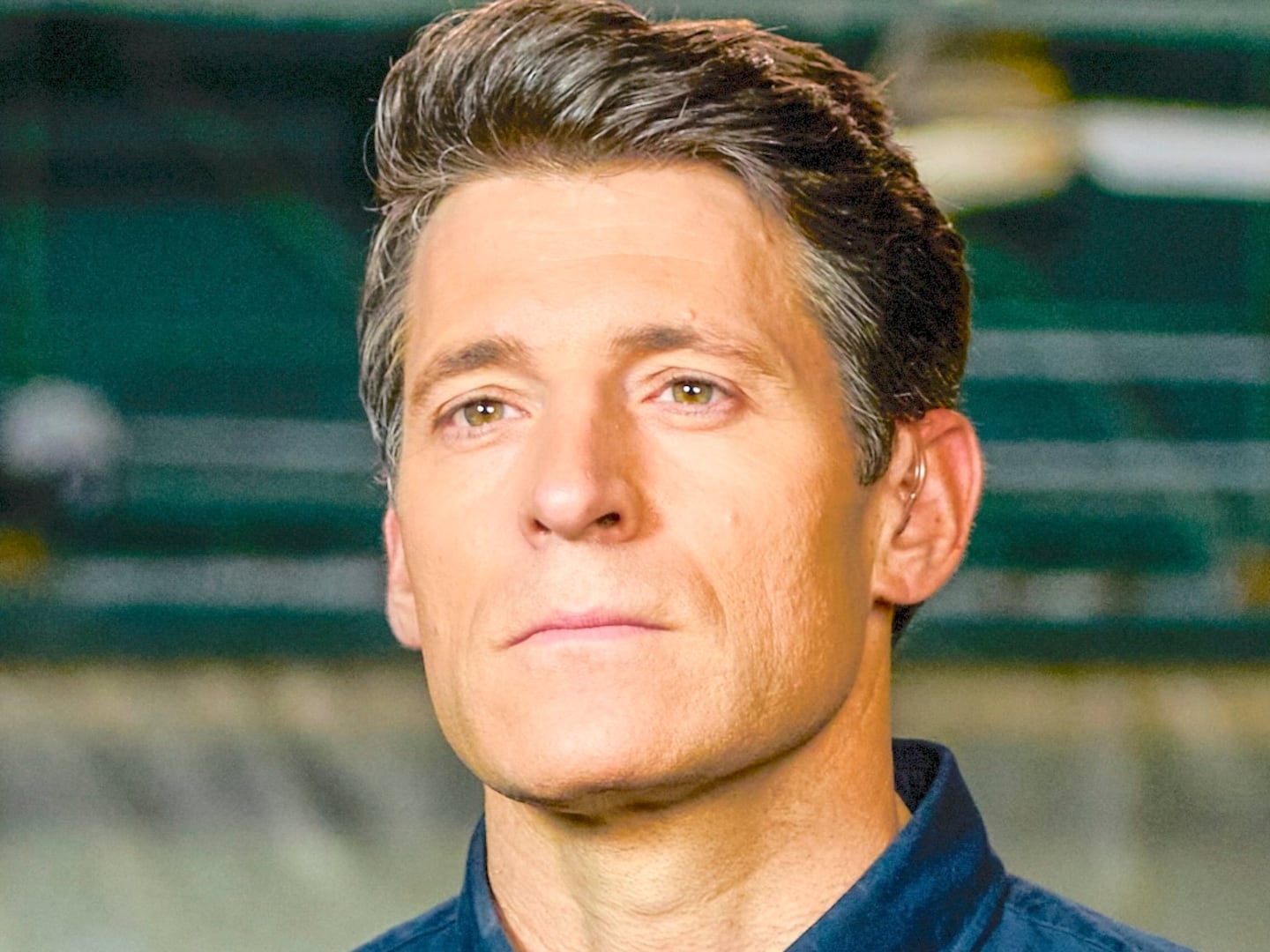This month marks the one-year anniversary of the repeal of Don’t Ask, Don’t Tell (DADT) allowing gays and lesbians to serve openly in the United States military. And despite all the handwringing during the past two decades about whether straight soldiers could accept openly gay comrades, the transition has been a peaceful one.
But that changed over Labor Day weekend, when four Marines were arrested following an alleged assault of a gay man outside a popular gay bar in Long Beach, Calif. The victim, Stacey Butler, a 30-year-old film student, was reportedly rendered unconscious from the attack that took place early Monday morning outside the Silver Fox, where he had gone with his boyfriend.
Butler, who was hospitalized overnight and released with non-life threatening injuries, according to Long Beach Police, told the CBS affiliate in Los Angeles, “I remember blacking out. All I remember is being put next to the curb. He starts pushing me and calling me f—. I told him I was gonna call police.”
The four suspects, all based at Camp Pendleton in Oceanside, Calif., were identified by a Pendleton public affairs official as Lance Cpl. Lewis Serna, Pfc. Thomas Pentek, Pfc. Sean Miller, and Lance Cpl. John O'Leary. They were arrested at the scene and have since been released on bail and returned to the base.
Two other individuals who came to the aid of the victim were also injured, according to the Long Beach Police Department, which has taken the case to the Los Angeles County District Attorney's Hate Crimes Division.
The motives of the Marines are not presently known, but several active-duty gay and lesbian members of the military who spoke exclusively to The Daily Beast shared their thoughts about the alleged crime.
“I personally think there’s a connection between what these Marines did and what we’re hearing right now from politicians across the country,” says a gay member of the Army’s Special Operations force, who’s been in the military for four years and just returned from serving in Afghanistan.

“The Republican Party platform that was released just before this (alleged) attack says gays don’t belong in the military,” says the Special Ops soldier, who asked not to be named (he says most of the men in his unit know he’s gay, but he hasn’t come out publicly). “Mitt Romney hasn’t gone as far as to say he would reverse the DADT repeal, but I think people know how he really feels about gay people. And I can see how these Marines can look at what Republican leaders are saying as justification for what they did. People they probably support politically are telling them that gays and lesbians don’t belong, that they are un-American.”
But Derek Morado, an openly gay 2nd Class Petty Officer in the Navy, doesn’t see it that way. Morado, who faced being discharged from the Navy for being gay but was allowed to stay after DADT’s repeal, thinks the assault was an isolated incident: “I don’t think the negative political rhetoric we’re hearing these days, as bad as it may be, had any influence on these guys. I think they’re just troubled and dealing with their own demons,” he says.
Romney has said during the presidential campaign that he would not try to overturn the repeal of DADT. But one Army Major—who has spent 15 years in the military, is legally married to another woman, is a parent and served in Afghanistan—isn’t convinced.
“I think if Romney gets elected we could see a change in policy and we could frankly see more of this type of violence,” says the Major, who asked not to be identified because she is having issues with a superior officer that are related to her sexual orientation.
She thinks there is a “direct connection” between the incident in Long Beach and the current political discourse.
“When someone who wants to be the new Commander in Chief says he opposed the repeal of Don’t Ask, Don’t Tell and is in a party that officially says gays and lesbians should not be in the military and that they should not be allowed to marry, what message does that send to the rank-and-file Marine and soldier? It creates an environment of ambiguity and potential hostility.”
Romney declined to comment for this story. Instead, a Romney spokesperson emailed The Daily Beast this exchange between Romney and the editorial board of The Des Moines Register, which took place last December during the primary race:
QUESTION: “How do you feel about gays serving openly in the military?”
ROMNEY: “That's already occurred. I'm not planning on reversing that at this state.”
QUESTION: “But you're comfortable with it?”
ROMNEY: “I—I was not comfortable with making the change during a period of conflict. By virtue of the complicating features of a—of a new program in the middle of—of two wars going on, but those wars are winding down and moving to that direction at this stage. It no longer presents that problem.”
Aubrey Sarvis, an Army veteran and executive director of Servicemembers Legal Defense Network (SLDN), a national nonprofit legal services and policy organization that helped to end DADT, says Romney’s position on open service for gays and lesbians has been “contradictory since he entered the race. He initially said he would not change the current policy, then he said he would look to his commanders for recommendations. The party platform suggests that all military policies by Obama will be revisited by Romney. This could mean an all-new set of regulations in a Romney Administration.”
Sarvis says some people mistakenly think that gays and lesbians in the military are serving under a new federal statute, but that is not what Congress did. “Congress repealed the old statute and left it up to Department of Defense to write a new set of regulations,” he says. “The reality is that a new Secretary of Defense appointed by a President Romney could issue a new set of regulations that might be discriminatory against gays and lesbians, and Romney wouldn’t even have to have his fingerprints on this change.”
But Sarvis, who on Wednesday sent a letter to Brigadier General Vincent Coglianese urging him to take swift action on the alleged Marine assault in California, says there would be widespread resistance if Romney tried to change the policy.
“It would be very disruptive to the force,” he says. “Imagine in three or four months going back to the old policy? But the risk is real. Gov. Romney should be pressed further on what indeed he believes and what he will do. He’s reluctant to address this, and that creates anxiety. No doubt he will if elected get considerable pressure from his base to change the policy. But nearly 70 percent of the American public supported the repeal of DADT.”
Heather Cronk, managing director of GetEqual, whose mission is to demand full equality for gays, lesbians and transgender people, says, “I don’t believe these Marines were watching the GOP convention and suddenly said ‘let’s go out and beat up a gay guy,’ but there is something to be said for the current tone of the Republican leadership and how that can influence behavior.”
Cronk cites Rep. Michelle Bachman (R-Minn.), who, she says, “goes to her district and talks about LGBT (lesbian, gay, bisexual, transgender) people like they’re the devil. That district has the largest incidence of school bullying against LGBT children in the country. That is not a coincidence. With Romney as Commander in Chief, the impact could be scary.”






